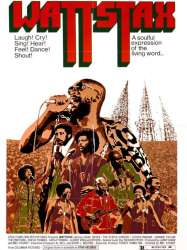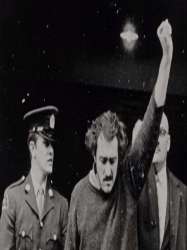Pawtucket Rising is a american film of genre Documentary
Pawtucket Rising (2009)

If you like this film, let us know!
- Infos
- Casting
- Technical infos
- Photos
- Videos
- Film quotes
- Characters
- Music
- Awards
Pawtucket Rising is a 2008 documentary film directed and produced by Jason Caminiti.
The film tells the decade-long story of how the city of Pawtucket, Rhode Island revitalized itself and became known as "Rhode Island's Creative Community."
Synopsis
Using first hand discussions with the primary proponents of the revitilazation of Pawtucket, the film shows a community coming together behind the arts. The film shows new uses for historic mills, now being used as artists work and living spaces. An historic national guard armory is saved from decades of decay by a small theater company called the Sandra Feinstein Gamm Theater. Alongside the Gamm Theater, is a new arts centric high school called the Jacqueline Walsh High School for the Performing Arts. Pawtucket has also brought in other arts organizations from the Providence area, like the Foundry Artists Association. When the owners of the Foundry in Providence wanted to convert their building to living space, the working artists were displaced. They were invited to Pawtucket, and have been exhibiting once a year for two weeks near the holiday season.Comments
Leave comment :
Suggestions of similar film to Pawtucket Rising
There are 8965 with the same cinematographic genres, 373 films with the same themes, to have finally 70 suggestions of similar films.If you liked Pawtucket Rising, you will probably like those similar films :

Legacy (2000)
, 1h30Origin USA
Genres Documentary
Themes Films about families, Documentaire sur une personnalité, Documentary films about cities
Rating67%





 , 1h40
, 1h40Directed by Antoine de Maximy
Origin France
Genres Documentary
Themes Documentary films about cities, Documentaire de voyage
Actors Antoine de Maximy
Rating72%





Antoine de Maximy part découvrir les États-Unis : ses grandes routes, ses paysages, ses mythes, ses grandes villes, ses communautés, ses stars hollywoodiennes mais également ses anonymes.

Complexo: Parallel Universe (2011)
, 1h20Origin Portugal
Genres Documentary
Themes Documentary films about cities
Rating65%






Trumbo (2007)
, 1h36Directed by Peter Askin
Origin USA
Genres Documentary, Historical
Themes Films about writers, Documentary films about business, Documentary films about the film industry, Documentary films about historical events, Documentaire sur une personnalité, Documentary films about cities, Political films
Actors Dalton Trumbo, Joan Allen, Michael Douglas, Liam Neeson, Paul Giamatti, Josh Lucas
Rating73%





En se concentrant sur la vie de Dalton Trumbo (1905-1976), ce film examine les effets sur les individus et les familles de la poursuite par le Congrès des communistes d'Hollywood après la Seconde Guerre mondiale. Trumbo était l'un des nombreux écrivains, réalisateurs et acteurs qui ont invoqué le premier amendement en refusant de répondre aux questions sous serment. Ils ont été mis sur la liste noire et emprisonnés. Nous suivons Trumbo en prison, en exil au Mexique avec sa famille, dans la pauvreté, dans le rejet public de ses enfants, dans ses écrits sous d'autres noms, et dans une éventuelle mais incomplète réhabilitation. Des acteurs lisent ses lettres ; ses enfants et ses amis se souviennent et commentent. Des photos d'archives, des films d'actualités et des interviews ajoutent de la texture.

Of Time and the City (2008)
, 1h12Directed by Terence Davies
Origin United-kingdom
Genres Documentary, Historical
Themes Documentary films about business, Documentary films about the film industry, Documentaire sur une personnalité, Documentary films about cities, Autobiographical documentary films
Actors Terence Davies
Rating71%





La ville de Liverpool dans les années 50 et 60.

Wattstax (1973)
, 1h38Directed by Mel Stuart
Origin USA
Genres Musical theatre, Documentary, Musical
Themes Films about music and musicians, Documentary films about music and musicians, Documentaire sur une personnalité, Documentary films about cities, Musical films
Actors Richard Pryor, Melvin Van Peebles, Isaac Hayes, Ted Lange, Erik Kilpatrick
Rating76%





Le Woodstock noir, concert d'anthologie donné en août 1972 au Watts Stadium de Los Angeles à la mémoire des émeutes noires de 1965 avec Isaac Hayes, Albert Kint, the Barkays, Little Milton, Rufus Thomas.

Fog City Mavericks (2007)
Origin USA
Genres Documentary
Themes Documentary films about business, Documentary films about the film industry, Documentary films about cities
Actors Francis Ford Coppola, Miloš Forman, John Lasseter, George Lucas, Steven Spielberg, Frank Darabont
Rating74%






City Out of Wilderness (1974)
, 28minutesOrigin USA
Genres Documentary
Themes Documentary films about historical events, Documentary films about cities
Rating24%





 , 58minutes
, 58minutesDirected by Robin Spry
Origin Canada
Genres Documentary
Themes Films about terrorism, Documentary films about law, Documentary films about war, Documentary films about historical events, Documentary films about politics, Documentary films about terrorism, Documentary films about cities, Political films, Documentary films about Quebec politics

Sea Point Days (2008)
, 1h36Origin South africa
Genres Documentary
Themes Films set in Africa, Films about racism, Documentary films about racism, Documentary films about law, Documentaire sur une personnalité, Documentary films about politics, Documentary films about cities, Political films
Rating68%





Alongside the southernmost urban centre in Africa, separating city from ocean, lays a very special strip of land. Set against the beautiful backdrop of the Atlantic Ocean on one side and Signal Hill on the other, the Sea Point Promenade – and the public swimming pools in its centre – forms a space unlike any in Cape Town. Once a bastion of Apartheid exclusivity, it is nowadays unique in its apparently easy mix of age, race, gender, religion, wealth status and sexual orientation. Somehow this space has become one where all South Africans feel they have a right to exist, and where the possibility of happiness in a divided world doesn't seem unfeasible. But what is the reality of those coming here? How do people see their past, their present in this space and their future in this country?
 Connection
Connection